PM pushes for full implementation of Paris deal
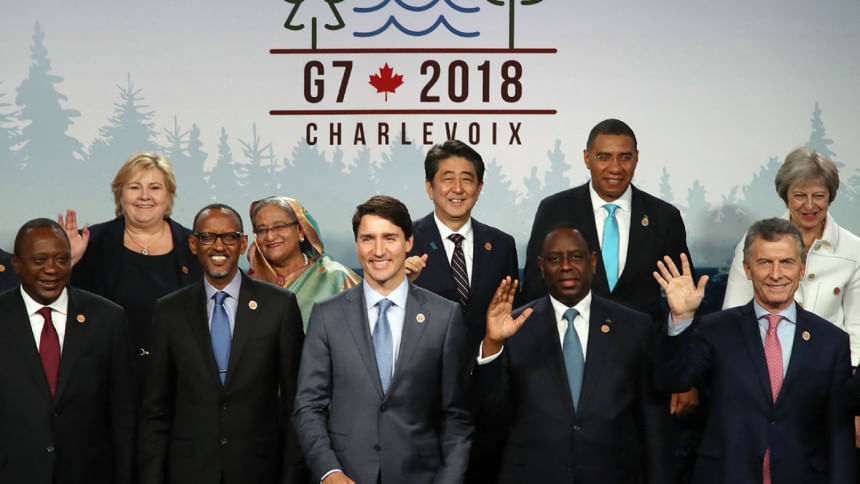
Prime Minister Sheikh Hasina has stressed the need for full implementation of the Paris Agreement as Bangladesh needs greater support for climate change adaptation.
"Full implementation of the Paris Agreement is crucial for Bangladesh. We need greater support for climate change adaptation," she said at an intervention on climate issues at the G7 Outreach Leaders' Summit at Manoir Richelieu Hotel in La Malbaie here.
The prime minister said available climate financing has to be augmented and facilitated for Bangladesh. The countries like Bangladesh also need support to capacity building, technology development and transfer in areas like agriculture, public health and disaster management.
She appreciated Canada's commitment to support the poor and most vulnerable countries to adapt to the adverse effects of climate change, commending Canada's pledge to contribute US$ 2.65 billion over the next five years to help the developing countries to tackle the climate change issue and US$ 300 million to the Green Climate Fund (GCF).
Sheikh Hasina also sought both financial and technological assistance from G7 countries to tackle global effects of climate change.
"In Bangladesh, we foresee intense floods and droughts and heavier monsoons. Rainfall is increasingly unpredictable. The intensity and frequencies of flooding, cyclone and storms are rising. Upstream salinity intrusion in rivers has increased. Natural fish stocks inland is depleting. In the next 20 years, five to 10 million people may have to move from our coast. Most of our development efforts and gains are at stake due to climate impacts, affecting the poorest most. Every year, Bangladesh spends about 1 percent of its GDP in combating climate change," she said.
At another intervention on Oceans, the Bangladesh Prime Minister emphasized partnerships between the G7 countries and the vulnerable nations like Bangladesh for sustainable management and protection of marine and coastal ecosystems.
"Partnerships between the G7 countries and the vulnerable countries like Bangladesh for sustainable management and protection of marine and coastal ecosystems is critical," she said citing examples that Bangladesh has been uniquely supporting millions of fishermen for 65 days when it bans all kinds of fishing in the country's rivers to support natural breeding every year.
This has helped Bangladesh conserve its national fish - Hilsa - and doubled its annual harvest in recent years. "We similarly ban juvenile hilsa fish fry harvesting for eight months in our coastal waters and the Bay. So, we would like G7 to stress that. All the countries should engage in oceans based on principles of mutual trust and respect, and mutual sharing of benefits."
Hasina suggested that science - technology, innovation capacity - in G7 could be mobilised for protection, preservation, exploitation of sustainable development of oceanic resources. "Development of adaptive technology and transfer of key technologies is crucial. Marine biotechnology has to be in focus. In tackling plastic littering in oceans, let's consider a range of industrial use and application of jute fibre which can virtually replace all forms of plastics. With jute, world can develop cost-effective bio-degradable alternatives."
She said Climate-vulnerable countries like Bangladesh need robust innovative finance for 'Blue Economy', not just based on market. "We look forward to creative leadership from G7 countries to lead and make practical difference for our marine life and people. Let's act before it gets late!"

 For all latest news, follow The Daily Star's Google News channel.
For all latest news, follow The Daily Star's Google News channel. 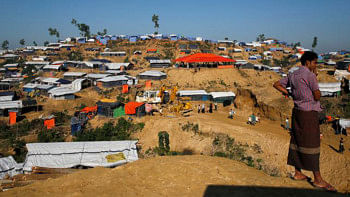



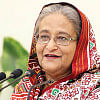
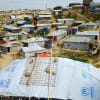
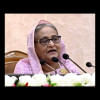


Comments